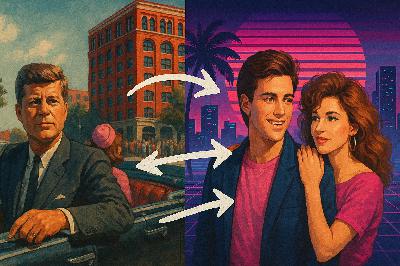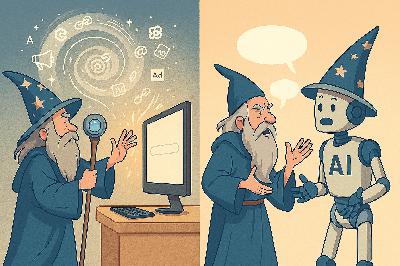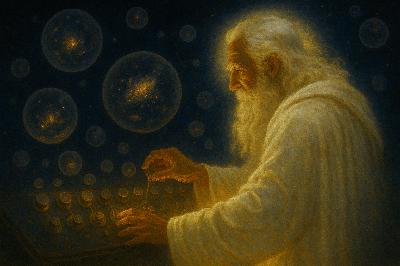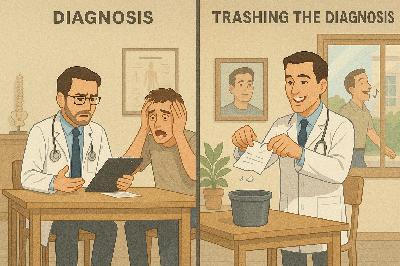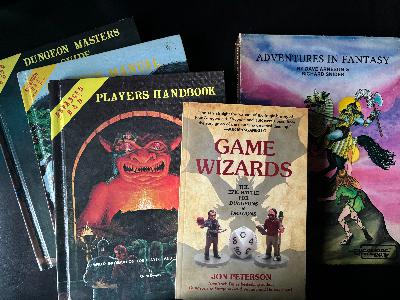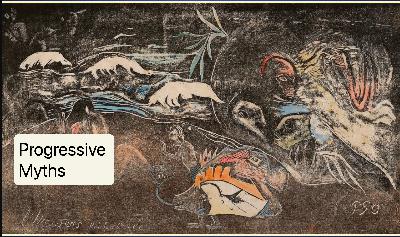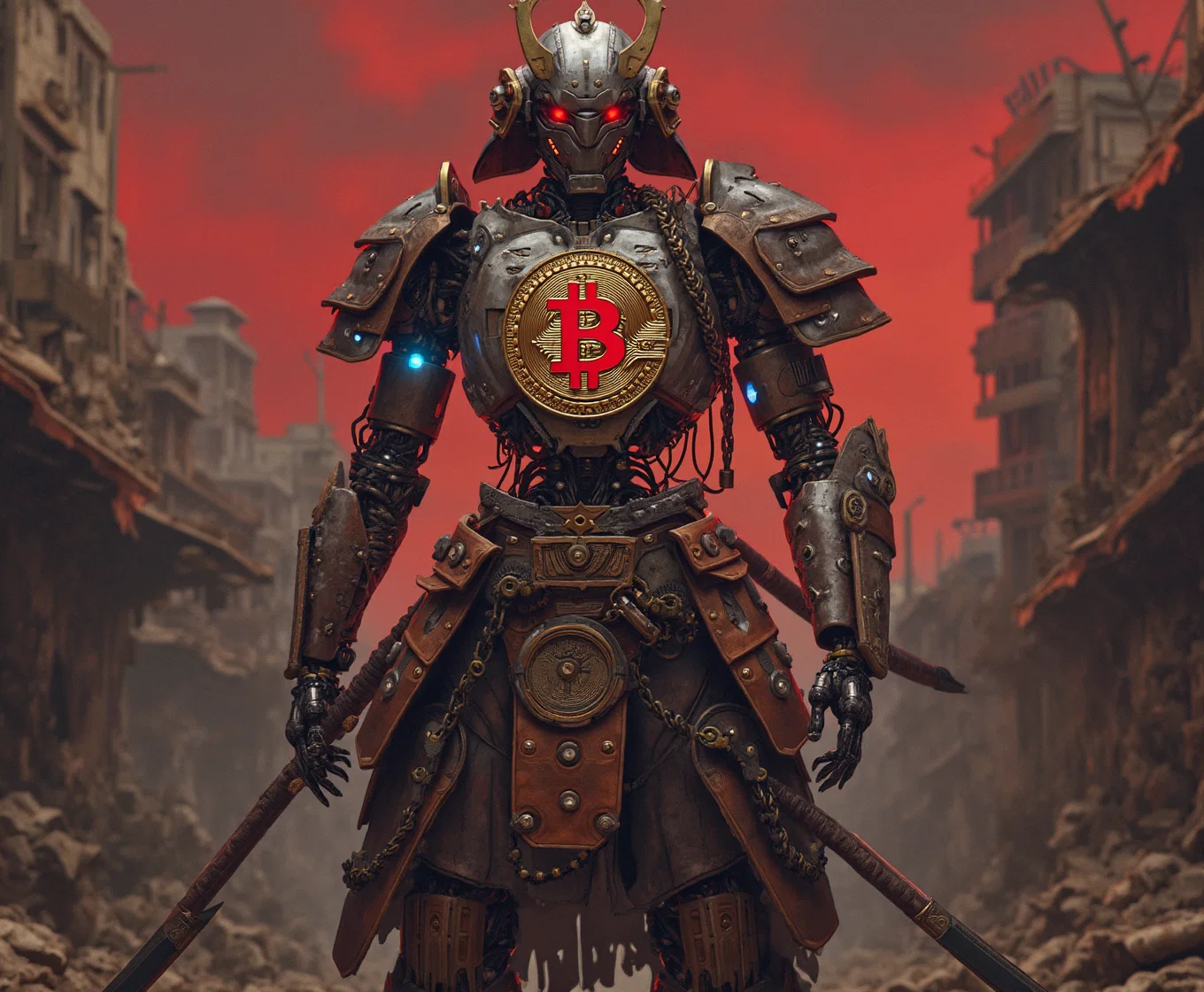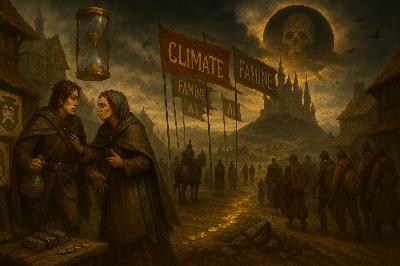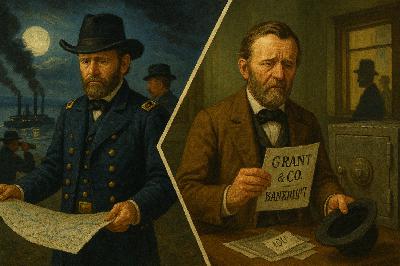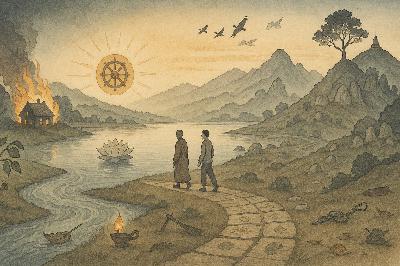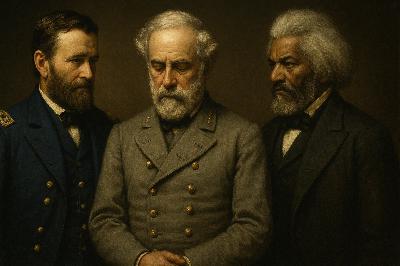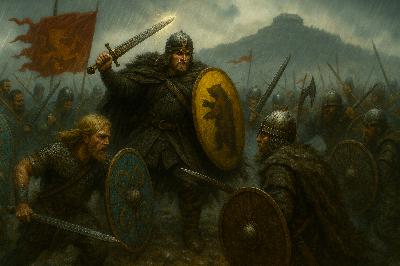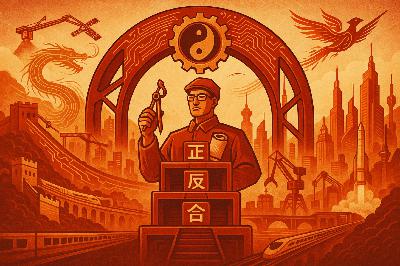Discover We Are Not Saved
We Are Not Saved

We Are Not Saved
Author: Jeremiah
Subscribed: 53Played: 5,193Subscribe
Share
© 2016 Ross W. Richey
Description
We Are Not Saved discusses religion (from a Christian/LDS perspective), politics, the end of the world, science fiction, artificial intelligence, and above all the limits of technology and progress.
458 Episodes
Reverse
Replay By: Ken Grimwood Published: 1998 320 Pages Briefly, what is this book about? A man dies and is sent back to his 18 year old self to relive his life over, and over, and over. Every time he dies he's sent back. He dies in 1988, and awakens in 1963, so there's a lot of discussion of those years (Kennedy Assassination, Moon landing, Iran Hostage crisis, etc.) Who should read this book? I came across a recommendation for this book on a Youtube channel that was doing a survey of all the movies that had functionally the same premise as Groundhog Day. And he included the book as sort of an appendix in other things people might want to check out. If you're a big fan of the Groundhog Day contrivance, then I think you'll like this book. Specific thoughts: Great on a personal level, weak on a world-building level. This review will go from spoiler free to light spoilers to full on spoilers. I will let you know at each transition.
It took 20 years from Bell inventing the telegraph before someone sent an ad with it. It took ~7 years for the first piece of email spam to be sent. Any bets on what it will look like for AI? Experimental AI Summary: I open with my own costly, underwhelming SEO experiment and the fact that I've mostly abandoned Google for LLMs, arguing that if AI chat replaces search then AIO (AI optimization) will replace SEO. I frame influence as "numerous / high-reputation / mentions," recall the web's shift from Yahoo's directory to Google's PageRank—where "reputation" changed everything and spawned link-farm tactics—and ask how the same gaming might hit AI. I sketch possibilities: models pre-vetting training data and tagging low-trust commercial pages; spam-style gatekeeping of AI inputs; straightforward paid placements inside AI answers; or darker outcomes where cheap marketing pollutes corpora and bad actors weaponize hallucinations. The core question for me is whether LLMs can build sturdier reputation defenses than Google or whether their architecture makes them easier to spoof. For now, AI search feels like Google circa 1998—astonishingly good—but I doubt it stays pristine once marketers and scammers fully arrive.
If you had been placing bets 150 years ago around what physics would have to say about the existence of God, you would have lost a lot of money. Modern Physics and Ancient Faith By: Stephen M. Barr Published: 2003 312 Pages Briefly, what is this book about? Barr takes all the discoveries of 20th-century physics, stuff like the Big Bang, quantum mechanics, the various forces, and argues that all of these things are more compatible with belief in God, specifically a traditional Judeo-Christian God, than with a belief in pure materialism. This is illustrated most succinctly in the underlying values for various background constants of the universe. For most of these if they varied even slightly then life would be impossible. This is known as the fine-tuning argument for the existence of God, and Barr lays it out in rigorous detail. What's the author's angle? Barr is a scientist, and a believing Catholic. So he definitely has a dog in the fight, but he also does a good job of steelmanning the other side of the argument. Also it's important to clarify what the fight is. It's not a fight between religion and science. Barr is both a believer and a scientist. It's a fight between religion and materialism. Which is a different animal. This is not to say he's dogmatic (perhaps I shouldn't keep using the word "fight") the tone is very reasonable. He's mostly targeting a lazy "modern science shows that God is silly and unnecessary" crowd. Who should read this book? This was one of the books mentioned by Ross Douthat in his book Believe (see my review of Douthat's book here, or check out the PSmith's far superior one here). And I was glad I followed Douthat's recommendation, the book did not disappoint. If you're at all interested in the fine-tuning argument or related ideas I think you'll love this book. But I can clearly see where it's too niche for the majority of people. What does the book have to say about the future?
You've heard about placebo's? Well what about nocebos? The Age of Diagnosis: How Our Obsession with Medical Labels Is Making Us Sicker By: Suzanne O'Sullivan Published: 2025 320 Pages Briefly, what is this book about? The idea that putting labels on something is not a free lunch—like everything else there are tradeoffs. Rather than framing numerous illnesses as being psychosomatic, O'Sullivan seems more to be suggesting that humans are very suggestible. (I get the meta-ness of the statement.) As such, once you generate a label it has a tendency to warp identities, and make people seek out confirming evidence. This all creates a sort of nocebo effect which may increase the severity of whatever symptoms they're experiencing. To put it more succinctly, labels have power and we should be circumspect about applying them. What's the author's angle? O'Sullivan is a neurologist who noticed that lots of patients have "normal" tests, but are also indisputably suffering. As someone more focused on the brain than other parts of the body, she has long contended that expectations, culture, current fads, etc. play a much bigger role than most doctors want to admit. It's not all about biology, psychology also has a role. Previous books include It's All in Your Head: True Stories of Imaginary Illness and The Sleeping Beauties: And Other Stories of Mystery Illness. Who should read this book? Anyone interested in a broader discussion of how the world outside of medicine interacts with the world of medicine. How the epistemic crisis, culture, disease advocacy groups, bureaucracy, and patient longing all affect the act of putting a label on a cluster of symptoms. What does the book have to say about the future?
It's another self help book. Is this the one that will finally put you over the top, or another in a long line of endeavors that look like progress, but are really procrastination? Inner Excellence: Train Your Mind for Extraordinary Performance and the Best Possible Life By: Jim Murphy Published: 2020 360 Pages Briefly, what is this book about? As you have already gathered, this is a self-help book. One of thousands (millions?) so the point is what sets this one apart from all those other books? I'm sure it hasn't avoided all overlap, but the book does have a focus on character, and getting rid of self-centeredness that was refreshing. What's the author's angle? Jim Murphy played baseball in the minor leagues, and he was obsessed with winning. Then vision problems derailed his career, so he gave away most of his possessions and moved to the desert. Over the next five years he did nothing sports psychology, in an attempt to figure out how to compete in a way that produced calm regardless of the outcome. Something he had previously lacked. He draws explicit parallels to Thoreau: I went to the woods because I wished to live deliberately, to front only the essential facts of life, and see if I could not learn what it had to teach, and not, when I came to die, discover that I had not lived. He went to the desert, but the idea was similar. Of course, not everyone has the wherewithal to retreat to the desert to spend five years thinking. But potentially, if one did, it would bring some very valuable insights. Who should read this book? It's once again time to do the self-help math...
Thomas Hardy wrote horror? Damnable Tales: A Folk Horror Anthology By: Various, Edited by Richard Wells Published: 2021 479 Pages Briefly, what is this book about? A collection of 22 older scary stories, presented in chronological order. The oldest story is from 1875, while the newest was written in 1965. But the majority are clustered in the late-victorian period 1880-1910. It includes stories from a few authors you might not expect like Thomas Hardy and Robert Louis Stevenson. Who should read this book? Anyone who has enjoyed an HP Lovecraft story will probably enjoy this book. Though I will say that you should view most of the stories as inspiration for Lovecraft, rather than similarly situated. Specific thoughts: A nice way to create a Halloween atmosphere.
Gary Gygax (Grognard 13/Writer 10/Businessman 2) vs. Dave Arneson (Plaintiff 14/Storyteller 9/Writer 1) Game Wizards: The Epic Battle for Dungeons & Dragons By: Jon Peterson Published: 2021 400 Pages Briefly, what is this book about? The history of Dungeons and Dragons, TSR's meteoric rise, the fights that inevitably happen when something becomes enormously successful, and the catastrophes that follow when people are in way over their head. What's the author's angle? Peterson is the man when it comes to the history of RPGs and D&D in particular. He's basically a historian, and he has no dog in any of the fights. Who should read this book? I really liked this book, and I really liked everything I've read by Peterson. That said, I might recommend the podcast When We Were Wizards, as an easier entry point for people interested in the story. And of course if you have no interest in the battle between Arneson and Gygax or the crazy initial years of D&D, I would not recommend either. Specific thoughts: Gygax was a jerk, and he was dumb, but he also deserves 90% of the credit for D&D.
It's possible that in our pursuit of justice and equity that a few things might have been exaggerated. Progressive Myths By: Michael Huemer Published: 2024 277 Pages Briefly, what is this book about? A wide-ranging debunking of most of the myths that flourished during the recent peak of social justice activism. Some myths concern specific incidents like those around Michael Brown and Kyle Rittenhouse. Others are ideological myths like the gender pay gap, or the efficiency of masks at preventing the spread of COVID. In total he covers twenty different myths. What's the author's angle? Huemer comes at things from a strong classically liberal approach. He is very wary of activism in all its forms. He's also clearly not worried about annoying people. Though he is very worried about people trying to "read between the lines". Do not "read between the lines" to infer what I "must be implying". If you think of some ridiculous or horrible political view that you think I'm implying, that is almost certainly just in your imagination. I am not the sort of writer who likes to imply his point. Who should read this book? If you consider yourself to be a good progressive I would definitely read this book. I suspect that such people won't, but honestly, if you're looking for the best steelman of the opposing arguments this is it. If you're on the opposite side of the fence you still might find some things that surprise you (Also Huemer makes a point of also covering a few things that aren't myths. Incidents progressives were correct about.) Many people speak very highly of Huemer's books, and I'll probably eventually read all of them. What does the book have to say about the future? Huemer has many recommendations for how to proceed, but they mostly boil down to having better epistemology. One of the great sins he identifies is motivated reasoning, which obscures facts, and beyond that leads to broad conclusions which are entirely unsupported by reality. And we seem to be getting more of such reasoning. Specific thoughts: How do we fix epistemology?
I expected to see a katana plunged into the heart of crypto. Instead I got a piece of wall art, where the two ideas were placed in near proximity, but without any contact. The Bushido of Bitcoin By: Aleksandar Svetski Published: 2024 529 Pages Briefly, what is this book about? Bitcoin will be the thing that saves the world from the fiat money created, debt fueled dystopia we're already descending into. As part of this salvation it will require people to adopt ancient (though also somewhat apocryphal) warrior virtues. Specifically: righteousness, courage, compassion, honor, honesty, responsibility, excellence, respect, duty, and restraint. What's the author's angle? As you may have already gathered, Svetski is a Bitcoin hyper-maximalist. Bitcoin isn't just our financial salvation, it's our spiritual salvation as well. Who should read this book? As a "return to virtue" tome it was pretty good, though long-winded, and a retread of books I'd already read. (Like Ryan Holiday's stoic stuff, if you're familiar with that.) On top of that it adds quite a bit of culture war stuff, which annoyed many of the reviewers on Goodreads and Amazon. It feels like a book without a natural audience. It's strident enough that you would already have to be convinced to enjoy it, but if you're already convinced then you probably know everything Svetski is going to say. What does the book have to say about the future? The book lays out two paths, we can double-down on the fiat-future which, at best, leads to dependence, and at worst disaster. Or we can adopt the more muscular, responsible, and sovereign path of Bitcoin. As usual with such books it skips over the messy middle. Specific thoughts: We need a new civic religion, but I'm not sure this is it
A meditation on technological divinity...
Don't hold back guys, tell us how you really feel. If Anyone Builds It, Everyone Dies: Why Superhuman AI Would Kill Us All By: Eliezer Yudkowsky and Nate Soares Published: 2025 272 Pages Briefly, what is this book about? This book makes the AI doomer case at its most extreme. It asserts that if we build artificial superintelligence (ASI) then that ASI will certainly kill all of humanity. Their argument in brief: the ASI will have goals. These goals are very unlikely to be in alignment with humanity's goals. This will bring humanity and the ASI into conflict over resources. Since the ASI will surpass us in every respect it will have no reason to negotiate with us. Its superhuman abilities will also leave us unable to stop it. Taken together this will leave the ASI with no reason to keep us around and many reasons to eliminate us—thus the "Everyone Dies" part of the title. What's the author's angle? Yudkowsky is the ultimate AI doomer. No one is more vocally worried about misaligned ASI than he. Soares is Robin to Yudkowsky's Batman. Who should read this book? For those familiar with the argument I don't think the book covers much in the way of new territory. For those unfamiliar with the argument I might recommend Superintelligence by Nick Bostrom instead. It makes the same points without being quite so tendentious. Specific thoughts: The parable of the alchemists and the unfairness of life
A man who possessed a singular talent for making war and being duped. Grant By: Ron Chernow Published: 2017 1104 Pages Briefly, what is this book about? A biography of Ulysses S. Grant, the greatest general of the Civil War, but also simultaneously one of the most guileless individuals ever profiled by a biographer. What's the author's angle? Chernow clearly thinks that Grant has been unfairly maligned as a corrupt drunkard, and this book is going to set the record straight. In Chernow's telling, Grant was the best general of the war, one of the better presidents, and overall a very honorable man whose only fault was that he was far, far too trusting. I'm not saying that Chernow is wrong about any of this, merely that there is a touch of the hagiographic to this book. Who should read this book? I've thoroughly enjoyed every Chernow book I've ever read. They're long, but they go down pretty easy. (Though reading about the brutality of reconstruction—i.e. the original Klu Klux Klan and its offshoots was extremely sad and painful.) Specific thoughts: How can someone be so good at fighting enemies on the battlefield and so bad at detecting treachery in those closest to him?
Chiefly Caused by Cytokine Cascades… Chasing My Cure: A Doctor's Race to Turn Hope into Action By: David Fajgenbaum Published: 2019 256 Pages Briefly, what is this book about? Right as Fajgenbaum was finishing up the exams for his third year of medical school, he was struck by his first attack of idiopathic multicentric Castleman disease. It nearly killed him (last rites were administered). He went on to have four more attacks, each of which also nearly killed him, but somehow in between attacks he was able to research the disease enough that he eventually found something (rapamycin) which has (so far) kept additional attacks from happening. As an outgrowth of his own research he founded the Castleman Disease Collaborative Network. What's the author's angle? This is one of those cases where the author has a large "angle", Fajgenbaum has Castleman disease, and is very much advocating (in the course of the book) for more research and more funding for the treatment of the disease he has. This is not a bad angle, but there is a lot of advocacy in the book. On the other hand the fact that he has the disease is also one of the book's great strengths. It creates a compelling story, and a fascinating approach to the research and cure of the disease. Who should read this book? I think it's most interesting for those who want to understand how medical research is done. Its failure points, but also its potential for life-altering outcomes. Fajgenbaum's personal story is also very interesting, and people who just like good biographical stories will also enjoy it. Specific thoughts: How much should this story be read as an example of broken science?
A small but powerful injection of Buddhism straight into your soul. The Dhammapada By: Unknown Translator: Gil Fronsdal Published: Sometime in the 3rd to 1st century BC 152 Pages Briefly, what is this book about? This is Buddhist scripture in a similar sense to how the New Testament is Christian scripture. In this case it's 423 verses (as opposed to nearly 8,000 in the New Testament) all of which have supposedly been uttered by the Buddha. The verses are arranged into thematic chapters (Mind, Anger, Happiness, etc.) What's the author's angle? In theory the author is the Buddha, and his angle would be bringing the readers to enlightenment. In reality most people believe that the verses were compiled by early Buddhist communities. The angle I got out of it was the elimination of desire. Who should read this book? Given how important this book is to tens of millions of people, and how short it is (if you're just looking at the verses absent commentary it's around 10,000 words) I would say anyone who's even remotely interested in religion, philosophy, or eastern thought, should read this book. Specific thoughts: More directly Buddhist than I expected
The more people you're asking to forget the messier things become. A Primer for Forgetting: Getting Past the Past By: Lewis Hyde Published: 2019 384 Pages Briefly, what is this book about? The necessity of forgetting, as conveyed through a broad collection of stories, essays, quotes, reflections, etc. It's more atmospheric than prescriptive. What's the author's angle? This is an important writer, doing important writing, lauded as important by other writers, teaching at an important university (for a time Harvard). None of this is necessarily bad, and it can be quite good, but you should know what you're in for. Who should read this book? David Foster Wallace (who I greatly admire) called Hyde "One of our true superstars of nonfiction" though he can't have been talking about this book since it was published long after he was dead. If his statement or anything in the last section piques your interest, then perhaps you will enjoy this book. I'm sorry I can't be more specific. It's that kind of book. Specific thoughts: An attempt to eat his cake and have it.
The history of attempting to make "controlled explosion" into something other than an oxymoron. Ignition!: An Informal History of Liquid Rocket Propellants By: John Drury Clark Published: 1972 216 Pages Briefly, what is this book about? An insider's account of the always exciting, frequently terrifying, attempts to develop the perfect liquid propellant. What's the author's angle? Clark was a program director, and he's mostly telling personal stories about the vast effort to find better liquid propellants. His sense of humor is great and his disdain for bureaucratic minutiae is obvious. He's one of those steely-eyed missile men you hear about. Who should read this book? People interested in a behind the scenes look at a fascinating period of engineering and discovery. Specific thoughts: Once We Were Engineers
Bernard Cornwell's best (and shortest) historical fiction series. The Warlord Chronicles By: Bernard Cornwell The Winter King Published: 1996 431 Pages Enemy of God Published: 1998 397 Pages Excalibur Published: 1999 436 Pages Briefly, what is this series about? The Arthurian Legends turned into historical fiction. All the tales are related retrospectively by Derfel, a Saxon boy raised by Merlin who eventually becomes Arthur's right hand man. Who should read this series? If you've read anything by Cornwell, but haven't read this, you should. Not only is this Cornwell's personal favorite of his series, it's only three books, unlike the Sharpe series which is apparently up to 24 books?!? Even if you don't know who Cornwell is, if you like historical fiction at all this is a great series. Specific thoughts: A realistic Arthur
The superior man uses his superior judgement to look superior on all the metrics. The Tyranny of Metrics By: Jerry Z. Muller Published: 2019 248 Pages Briefly, what is this book about? The distorting effects of an over-reliance on metrics particularly when it comes to creating incentives. What's the author's angle? Muller was frustrated by the numerous metrics being imposed upon him in academia, frustrated enough to write a book about it. Who should read this book? If you're in an environment where you feel like metrics are being overused and abused, this book can help you identify how that's happening, and what you might be able to do about it. Specific thoughts: Bad metrics are everywhere, why isn't this problem better known?
Lawyers vs. Engineers. Infrastructure in America, China and Europe. Edmund Burke and the Revolutionary War.
Breakneck: China's Quest to Engineer the Future By: Dan Wang Published: 2025 288 Pages Briefly, what is this book about? The rise of China's immense manufacturing prowess, where it comes from (a culture of engineering according to Want), and where it might be going. What's the author's angle? Wang has been putting out a well regarded annual letter on China for many years now. This is a distillation of his thoughts in book form. Also he has Chinese parents who often regret leaving China when they did. Who should read this book? If you're at all interested in what's happening with China you should absolutely read this book. Specific thoughts: Which theory of China is correct?


